Safari Read online
Page 2
‘Get down!’ Reynolds yelled.
The American ignored him. ‘Dear Lord, I see him!’ He raised the Weatherby to his shoulder, centred the black man in the crosshairs of his telescopic sight and pulled the trigger. Nothing.
The African had seen him now. The dentist locked eyes with the man who had tried to kill him and his professional hunter. He realised that in his haste, he had forgotten to chamber a round. A sudden calmness came over him as he lowered the rifle and worked the bolt. He brought the weapon back to his shoulder and took another sight picture. ‘Die,’ he whispered.
Reynolds was on his knees now and could see the African. The man looked oddly familiar. He saw the man start to raise his rifle high in the air with one hand. It looked like he wanted to surrender. ‘Chuck; wait, man, he’s . . .’
The Weatherby boomed. The single shot echoed up the valley. The African was knocked backwards with the force of a stallion’s kick. Reynolds was on his feet. ‘Jesus Christ,’ he panted as he ran forward. ‘Stay there, damnit,’ he ordered the American.
When he reached the man, the life force was oozing out of him, his breathing shallow and ragged. He looked up, into the sun, and the heavy-breathing white man. ‘Mister Reynolds,’ he croaked.
Fletcher dropped to one knee and took the man’s hand in his. ‘Patrick . . . it’s you.’ He swore under his breath. He had known the old ranger from his days at Robins Camp in the north of the national park. He had eaten with him, drunk with him, run him into the Falls occasionally on leave. Reynolds knew the government had been getting rid of the older rangers, but he had not given a second thought to what had happened to Patrick after his forced retirement.
‘I . . . tell them I am . . . sorry, sah.’
Reynolds was a hard man who hadn’t cried in thirty years, not since the loss of his first friend during the war. He felt his throat tighten and the tears well behind his eyes as a series of violent spasms rocked Patrick’s body. He heard heavy footsteps behind him. ‘I told you to stay put, Chuck.’
‘Praise be!’ the American bellowed. He hopped from foot to foot, the adrenaline still coursing through his veins. ‘Try and shoot us, you godless heathen, and you’ll see what happens. That’s right!’ He lashed out with his right boot and delivered a hard, fast kick to the lifeless man’s rib cage.
Reynolds was on his feet faster than a striking cobra. He dropped his rifle and grabbed the dentist by the lapels. ‘Shit, man! He was trying to surrender!’
The American met his stare, not flinching, a new hardness to his reedy voice. ‘I just saved our lives, Fletcher. That man was carrying a weapon inside the national park. If the rangers had seen him they would have shot him on sight – that’s what you told me.’
‘Yes, the bloody rangers could have shot him, but not us. He was probably hunting the same kudu that we were!’ Reynolds let go of his client and ran a hand through his thick mane of silver hair. He had to start thinking.
‘It was self-defence. I never saw a kudu, did you?’
Reynolds bit his lower lip. The Yank was right, damn him. It was their only defence, and it would work. The local cops might try to shake down South African tourists and local whites, but they’d have a hard time locking up a rich American. If needs be, a small ‘favour’ could ensure the desired result. ‘At least let’s make sure we get our stories straight.’
Reynolds looked down at the body of Patrick Mpofu, his blood pooling in the dust and dried grass, and wondered how his country had descended so quickly into hell.
The CID detectives from the town of Hwange exuded an air of professionalism but Reynolds reckoned most of it was show. One had a shaved head and mirrored wraparound sunglasses, the other a knock-off Kangol cap on backwards. The Samuel L Jackson and Will Smith dos and accessories were Hollywood, but their cheap, scuffed leather shoes were pure Republic of Zimbabwe.
Chuck’s earlier bravado had waned on the trip back to Isilwane Lodge in the Land Rover that Reynolds had radioed for on his walkie-talkie. They’d placed Patrick’s body in the old refrigerated railway container Reynolds used to store game meat, among sides of impala and buffalo haunches. Seeing those soulless eyes had reminded him again of the war, and how easy it had been for him to kill, when he had to. He’d given the American a brandy to steady his nerves, then told him to brush his teeth as the police Santana, a Spanish-built Land Rover, raised a dust cloud on the access road. They had quickly gone over their stories once more.
‘This man was clearly breaking the law by being in the national park with a weapon. We investigated the scene where the shooting took place and confirmed that he was across the park boundary,’ the bald detective said.
‘And he fired on us first,’ Chuck chimed in, repeating part of his earlier statement.
‘So you say, Doctor Hamley,’ the designer-cap cop said. ‘But I am still concerned that you and Mister Reynolds were so close to the border of the park.’
‘And as I said before,’ Reynolds interjected, ‘we’d given up on finding a good trophy. My concession has suffered severely from poaching and this hunt had turned out to be more of a walk in the bush. I was hoping to show my client some game in the park, even if we couldn’t shoot anything.’ Chuck nodded vigorously in agreement. The part about the poaching, at least, was the truth.
It was cool inside the airy, open lounge area. The steeply pitched thatched roof rose cathedral-like above them. The only sound was the ticking of an antique grandfather clock as the police reread their notes and waited, in vain, for the American or the professional hunter to fill the silence. Reynolds looked around his home. He had spent twenty-seven years since the end of the bush war building up his business, developing a rapport with officials who had once fought against him – bribing those who couldn’t be sweet-talked or satisfied with permits and paperwork. The business had cost him his marriage. He had weathered drought and fire, political upheavals, invasion by disaffected veterans of the liberation war who coveted the lodge and his apparent wealth, and the country’s slide into economic ruin. The truth was that the bottom had fallen out of the hunting business, as most of the well-heeled clients from Europe and America forsook strife-torn Zimbabwe for more stable countries such as Zambia and Tanzania. If the police revoked his hunting licence, or even slapped a fine on him, he would go under in a heartbeat.
The bald detective, outwardly the friendlier of the two, pushed back his heavy mahogany chair. It scraped on the slate tiles. He extended a hand and said, ‘Mister Reynolds, thank you for your time. It will be our recommendation that no charges be laid against you or your client. In fact, you have done us a service. These poachers are ma-tsotsi.’ He turned to the American and translated, ‘Criminals. Without the foreign exchange that visitors like yourself bring to this country we would be in great peril.’
Reynolds had to bite his tongue. The government, ably abetted by its police force, had done everything it could to imperil the country economically, politically and socially. A good man was now lying cold and dead in the back of a police vehicle as proof of that fact.
‘I am sorry for any inconvenience,’ the policeman said to the dentist. ‘Please enjoy the rest of your stay in Zimbabwe.’
2
Shane Castle dressed for work in Iraq.
Boots. American Army issue, suede, desert tan with chunky rubber soles for good grip.
Trousers. Khaki cargo pants. In the right leg pocket, as per company standard operating procedures, were two field dressings – bulky pads for sticking in holes and soaking up blood. The left pocket contained a portable GPS.
PPE – personal protective equipment. A nylon vest with Kevlar chest and back plates inserted in pockets fastened with Velcro. The flak jacket was company issue, but Shane, like the other members in his team, had bought side plates as well. They spent most of their time in the car, and if a bullet were going to get you it would most likely come from the side of the road, rather than from the front or back.
Webbing. He wore the same Austral
ian-designed chest rig he’d bought in Perth prior to his tour in Afghanistan in 2002, when he’d served with 1 Special Air Service Squadron. The gear had originally been supplied in the dappled green and brown disruptive-pattern camouflage of the Australian Defence Force, but he’d spray-painted it desert tan with an aerosol can. The paint job hadn’t been wasted, as he’d dusted off the same piece of kit a year later when the SAS had crossed the border into Iraq. Here he was back again, in the same shit hole. Only this time the pay was better.
Ammunition. Two hundred and fifty eight rounds of 5.56 millimetre in nine magazines in the chest rig. Twenty-one rounds of spare .45 calibre pistol ammo in three single-stack mags.
Weapons. The tools of his trade. M4 carbine with a Wildcat sight and a night-aiming device. The rifle was a cut-down version of the long-barrelled M-16 still in general service with the US Army. In the black nylon holster slung low on his right thigh was a design relic from before the First World War – an M1911 Colt .45 automatic with seven rounds in the magazine and another up the spout. He’d bought the pocket cannon from an American contractor who had cashed in and gone home. The Yank, like many of his SF colleagues still in uniform, had swapped his standard nine millimetre pistol for the older, heavier .45 after it became clear on the streets of Fallujah and Baghdad that the newer, lighter bullets weren’t enough to put down a hyped-up fundamentalist who was probably also wearing body armour and not averse to taking a few slugs on his way to his date with Allah and a bevy of virgins.
On his belt was a Leatherman Wave, which he mainly used for opening bottles and cleaning his fingernails; a US Marine Corps K-Bar combat knife, and an MBITR tactical radio. Around his neck on a chain with his company dog tags was a syrette of morphine.
He inserted the radio’s earpiece into his left ear – he’d be sitting in the front passenger seat so he didn’t want it visible to pedestrians on his side of the road – and taped its cord to the left side of his neck. Over the top of his webbing he pulled on a plain white cotton business shirt, a size too big for him and left unbuttoned to accommodate the bulk of his webbing. They were taking the blue Landcruiser today, the one with the CD dangling from the rear-view mirror, a garish strip of offcut carpet on the dashboard and a prayer in Arabic on the rear window beseeching Allah to take care of all on board. With his thick, wavy jet-black hair cut short, Saddam black moustache and white shirt he hoped he would be mistaken for an Iraqi civilian by a casual observer.
Shane checked his watch. Still twenty minutes to go. It was his military background that made him habitually early. He lowered his bullet-draped body into the fold-out camping chair that he’d bought from the US Army PX, like most of the furnishings in the airconditioned portacabin he called home for three months at a time. He lit a Marlboro and punched the button on the remote. The flat screen beeped to life. It was tuned to the Satellite News Network, SNN – twenty-four hour news, though usually it was the same thing rehashed twenty-four times a day. Mercifully the story was about somewhere other than Iraq. An earthquake in Turkey. Pictures of body bags. He shut his eyes and remembered the last car bomb, and the one before. His nightmare – everyone’s on the team. The pictures cut back to the pretty Indian presenter, upper-class voice and pearls, a map of Africa behind her signalling a new story, more tragedy somewhere else in the world.
‘In Zimbabwe, it’s not only the country’s human inhabitants who are feeling the effects of natural and man-made disasters. A worsening drought situation, political instability and economic ruin have lead to an increase in poaching of endangered wildlife. SNN’s Africa correspondent, Sarah Thatcher, has more . . .’
He knew the location even before the blonde correspondent said it. Hwange National Park. Sweeping vistas of parched golden grass reaching for skies tinged blue-grey by the dust that hung over the place during the dry season. Pans that looked like a moonscape of dust after tens of thousands of elephant had passed through; mopane trees reduced to little more than ragged pachyderm toothpicks. A tight shot of a dry waterhole, Africans in parks uniforms carrying a mix of AK 47s and SLRs. An anti-poaching patrol according to the reporter ‘. . . this thin green line is fighting a losing battle’. The carcass of a rhino, its horn hacked off, vultures inside a belly hollowed out by hyenas.
Shane leaned forward in his chair, subconsciously trying to bridge the gap between past and present, and teleport himself back to Africa.
The reporter was talking about an American hunter getting involved in a fire fight with a poacher and nailing him. Bully for the Yank. The ‘war on poaching’ story was an old chestnut. The words didn’t concern him, but the pictures of Africa hurt like a hook thorn branch wrapped around his soul. Like a child, he wanted to reach out and touch the screen, to reconnect with those tragically alluring flickering images. He was in Iraq for one reason only – to make enough money to get back to the continent of his birth. Africa.
His schoolteacher parents had left Zimbabwe for Australia in the mid-eighties, when he was fifteen. He’d been old enough to realise he belonged in Africa and the relocation was as much of a wrench for him as it was for his folks. His mother and father had wanted a better future for Shane and his younger sister, but all the boy wanted was to get a job as a game ranger and live in the African bush.
His parents had found jobs in the public school system in Australia, but hadn’t earned enough for the family to return to Zimbabwe on holiday. He sensed, anyway, that having taken the decision to leave, they couldn’t bear to see the country they had loved slide further into ruin.
Africa had its problems – the story on the TV concerned only one – but the continent was a model of peace and prosperity compared with Iraq. Shane had believed, when he’d taken his SAS patrol across the border in 2003, that whether Saddam Hussein was hiding weapons of mass destruction or not, the man was genuinely evil and needed to be taken down. Politicians and do-gooders could rail as much as they liked about what Saddam did or did not have hidden in his bunkers, but the simple fact was the tyrant had murdered thousands of his own people. That was where the straightforwardness stopped.
Sunnis, Shiites, Kurds, Christians, Iraqis, foreign Arabs, Americans, Australians, Britons, and a whole host of other nations for and against the Yanks, were all still trying to keep the peace or keep the war going, depending on whose propaganda you listened to. In the middle of it were people like himself – former soldiers from around the world working as contract security operators, and he wasn’t the only one born in Africa. He’d met guys in their late forties and fifties who had served in the Rhodesian Army while Shane was a child.
Shane had done well at school, and transferred his love of the African bush to the Australian outback. The family could, at least, afford camping trips around Perth, where they lived. They wanted him to take a university degree, but he had his sights set on an outdoor life. The army seemed like a good compromise, and he’d studied science – with a view to specialising in zoology later in life – while learning to become an officer at the Australian Defence Force Academy in Canberra. He soon learned, however, that a life in uniform would be more rewarding and more exciting than sexing frogs in a lab or counting kangaroos in the outback.
Physically fit, intelligent and determined to succeed at whatever task was set him, Shane had naturally drifted from his first posting in an infantry battalion to special forces. The Special Air Service Regiment was based at Swanbourne, on the West Australian coast, not far from where he had spent his late teens.
His parents had been proud of his service in the army of their adopted country, but he knew they disapproved of his decision to follow many of his comrades and leave to work as a civilian in Iraq. In their eyes, he was now little more than a mercenary. Today he and the other members of his team would be providing an escort for a senior female diplomat from UNICEF who was coming to Baghdad to announce more UN funding for schools. Didn’t sound like a particularly sexy gig for a mercenary. There were others who had left the regiment to do things a lot worse. H
e slept okay at night, apart from the nightmares about car bombs – and that was just an occupational hazard, right? He stubbed the cigarette out and, without thinking about it, lit another.
The story on the television ended with a classic African scene – a herd of jumbos passing along a ridge at sunset, the big red ball sinking behind a flat-topped acacia. He could almost smell the dust and the musty tang of elephant. He switched the set off and sat there in the cool, dark cabin, the hum of the aircon the only sound now.
Another year in Iraq and he reckoned he’d have enough money to live his dream and buy his own piece of Africa. If Zimbabwe ever came good he would settle there, but for the moment he’d been eyeing properties on the net in South Africa’s Limpopo Province, in the hot, dry north of the country, around Musina. He had returned to Zimbabwe and travelled to South Africa and Namibia on half-a-dozen occasions over the years, at his own expense, on leave from the army. On one trip he had paid to attain a basic field guide’s qualification, refreshing and enhancing the knowledge of the African bush he had gained as a child.
The years, he realised now as he smoked, had slipped away too fast. There had always been the dream of returning to Africa one day but, as the twentieth century drew to a close, the Australian Army had suddenly found itself busy. Shane’s run of overseas deployments started with Australia’s military intervention to restore peace to East Timor, which seceded from Indonesia with bloody consequences. After September 11, Shane knew his world would be changed irrevocably. First it was Afghanistan, then Iraq, as a soldier and now as a hired gun.
There was a knock at the door. ‘It’s open,’ Shane called, stubbing out the cigarette.
‘Ready?’ Geezer, the Englishman, ex Special Boat Service, filled the doorway. Sunlight bright enough to make him squint peeked around the huge frame. The M4 looked like a toy in his meaty hand. ‘See that shite on the telly about Zimbabwe?’

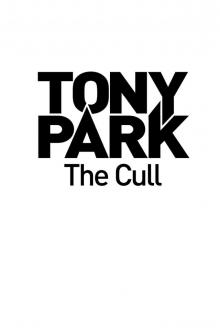 The Cull
The Cull Blood Trail
Blood Trail Red Earth
Red Earth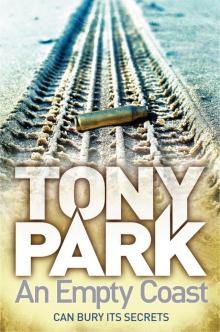 An Empty Coast
An Empty Coast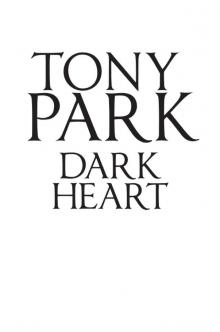 Dark Heart
Dark Heart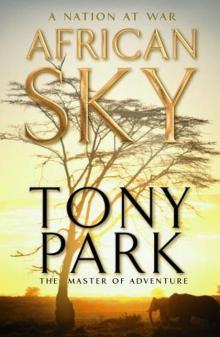 African Sky
African Sky The Delta
The Delta Captive
Captive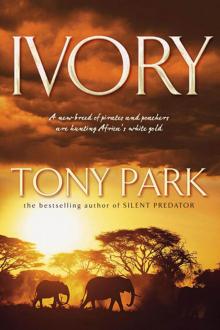 Ivory
Ivory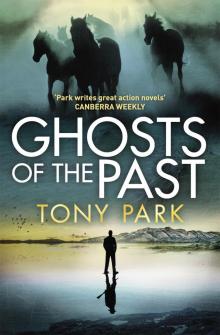 Ghosts of the Past
Ghosts of the Past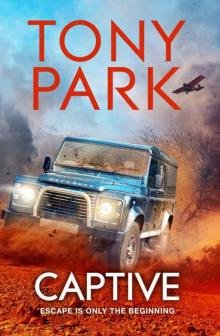 Captive_A High-octane And Gripping African Thriller
Captive_A High-octane And Gripping African Thriller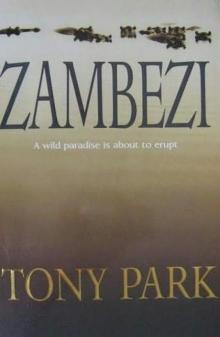 Zambezi
Zambezi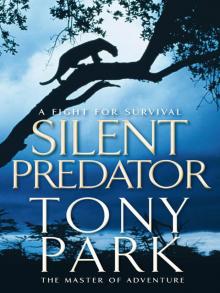 Silent Predator
Silent Predator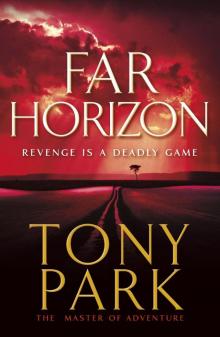 Far Horizon
Far Horizon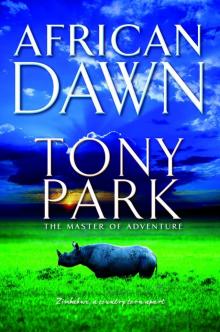 African Dawn
African Dawn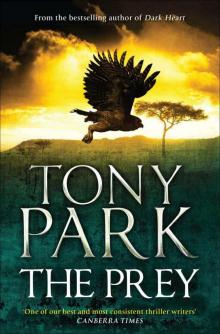 The Prey
The Prey Safari
Safari